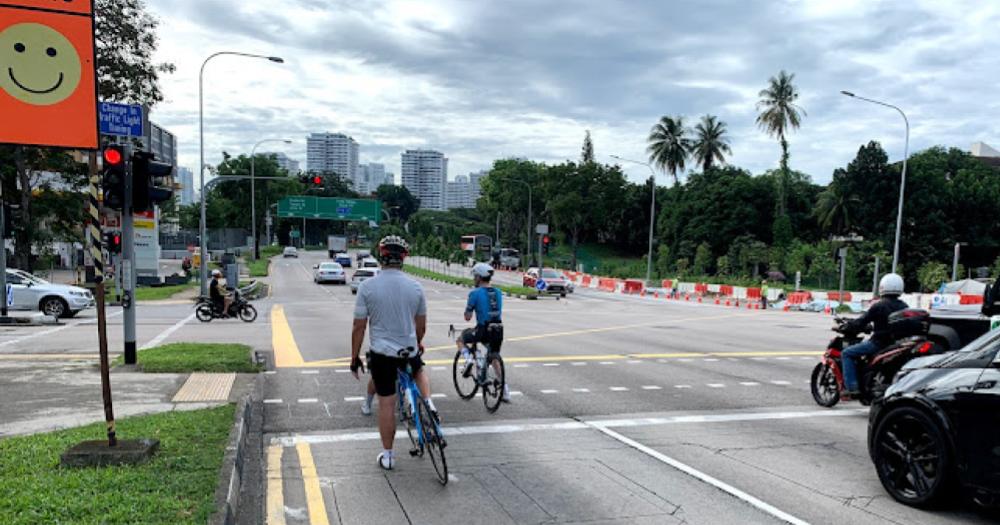Follow us on Telegram for the latest updates: https://t.me/mothershipsg
Currently, cyclists are allowed to ride in twos on the road, provided that they are not riding on a single-lane road, or in a bus lane during bus lane hours.
The Active Mobility Advisory Panel (AMAP) has recommended that this should be allowed to continue, for cyclists' safety and visibility.
This was one of the recommendations made in a report dated Oct. 1, which was submitted to transport minister S Iswaran following AMAP's review.
The review which involved studying practices overseas, conducting public consultations and focus groups, as well as a survey.
It was previously announced that the AMAP would reviewing rules for road cyclists, by Senior Minister of State for Transport Chee Hong Tat who spoke in Parliament in May this year.
One of the issues mentioned at the time was the practice of riding two abreast.
AMAP recommends groups of up to 10 on roads
However, one proposed change to the rules is to limit road cyclists' group sizes to 10, provided that they were riding two abreast, or five in a single file.
The AMAP said that this was so that "if the group is considered as a slow-moving vehicle on the road, it is about the length of a bus".
Such a rule, if introduced, would allow for safer interactions between road users, while providing flexibility for cyclists to ride in groups, the AMAP said.
It stressed that prevailing rules — such as Covid-19 restrictions on safe distancing and group sizes — should still be followed, however.
The AMAP also recommended that different groups of cyclists should keep a distance of around 30m from each other, citing safety as a consideration.
There is currently no limit on the number of cyclists who can cycle together on the road, though the Singapore Cycling Federation (SCF) has released various advisories on group riding amid Covid-19.
SCF's latest advisory on Sep. 27 states that riders should adhere to the prevailing restrictions on groups of two for social gatherings, and observe a minimum of 3m spacing between different groups.
AMAP recommends 1.5m "minimum passing distance" guideline
The AMAP also recommended the introduction of a 1.5m "minimum passing distance" guideline, for motorists to observe when passing cyclists on roads.
The guideline should be included in the Highway Code and driving test handbooks, said the AMAP, to provide greater clarity on how road users should interact.
Bicycle registration and licensing of cyclists
Another issue that the AMAP studied included whether cyclists should be made to register their bicycles and get licenses to ride on the road — a topic that has been raised over the years, and recently brought up by then-Temasek CEO Ho Ching in April:
"Overall, there is little evidence from overseas jurisdictions that such resource-intensive regimes are effective in deterring errant cycling, or enhancing road safety," said the AMAP, saying that it does not recommend licensing and registration "at this juncture".
Such measures could also hinder the take-up of cycling in Singapore, and would "disproportionately affect more vulnerable groups of cyclists, including seniors and individuals who rely on bicycles for work and commute."
The panel also made some additional recommendations, for cyclists to take up third-party liability insurance, and for the Government to step up its public education efforts.
The AMAP added a note on enforcement against errant riders, saying:
"While most cyclists are law-abiding, the Panel recommends that the Government take firm enforcement action against errant riders to deter errant behaviours, as road safety is a shared responsibility, and all users have a role to play."
The AMAP report is available on the Land Transport Authority (LTA) website.
Chee said in a Facebook post on Oct. 1 that the Ministry of Transport would evaluate the recommendations before giving its response.
Top photo by Nigel Chua
Follow and listen to our podcast here
If you like what you read, follow us on Facebook, Instagram, Twitter and Telegram to get the latest updates.
